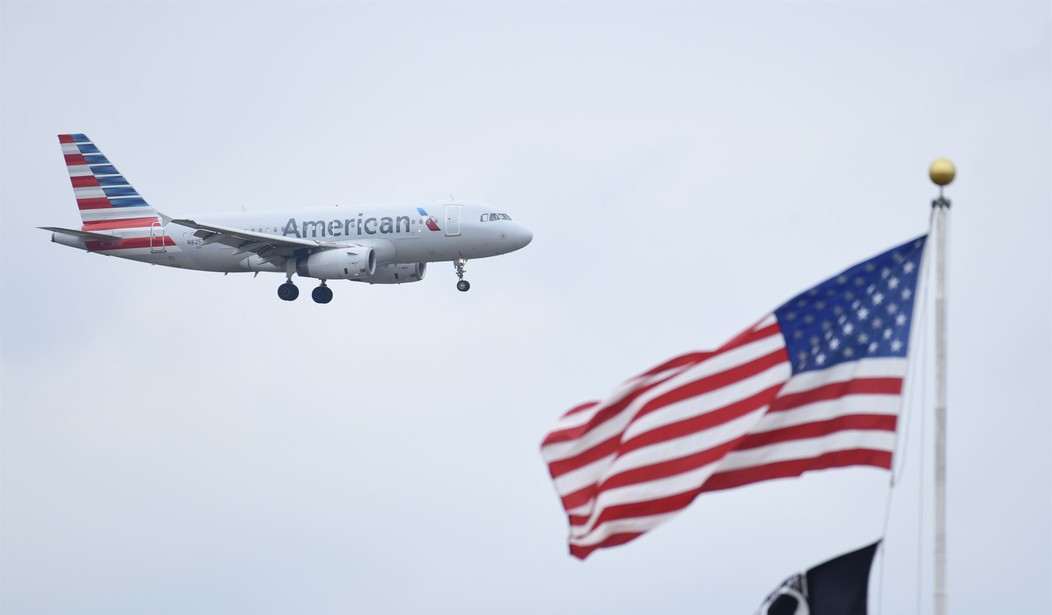While passing last week’s Coronavirus relief package, Congress opened the door for a government takeover of the airline industry.
Intended to pull the airline industry out of a nosedive, the package provides $50 billion in aid to air carriers, split evenly between loans and grant programs designed for payroll support. However, that money comes with significant strings attached.
In order to receive assistance, the airlines must refrain from involuntary furloughs or reductions in compensation until the end of September. Additionally, the bill prevents airlines who receive aid from performing stock buybacks or issuing dividends for 18 months while also freezing the compensation of executives who made over $425,000.
These provisions are a bipartisan compromise ensuring that during the partial shutdown of the airline industry taxpayer dollars are used for covering operating costs and keeping workers on payroll. This aid for the airline industry is in line with the core goals of the broader relief package to keep paychecks coming to American families and businesses afloat while the country waits out a pandemic.
However, Congress included an additional condition for the aid to airlines which would allow the government to take an ownership stake in the companies themselves.
Buried in the text of the legislation is a provision allowing the Treasury Secretary the “sole determination” to receive “warrants, options, preferred stock, debt securities, notes, or other financial instruments” from airline companies as compensation to the government for providing assistance. Secretary Mnuchin could turn taxpayer money into government ownership of an airline.
Sending $50 billion of taxpayer funds to large corporations was a tough pill for conservatives to swallow. But nobody signed up for a potential government takeover of private companies.
Support of the relief package from conservatives and small government advocates hinges on the notion that the government has a responsibility to compensate businesses and individuals for its necessary intervention in the marketplace. Right now, an estimated 294 million Americans across 37 states are being instructed by government officials to stay home. The Trump administration has closed the Canadian border and enacted a host of restrictions and bans on travel across the globe. As a result, airlines have been forced to slash flights by up to 90%.
Recommended
The best available comparison to the current situation is eminent domain, in which the government must compensate individuals compelled to abandon their property to achieve a necessary public good. The airline industry is approaching insolvency due to an understandable governmental response to a public health emergency. The relief bill was an appropriate function of government in this case. Conditioning that support in exchange for further government expansion and increased control over private companies betrays the very reasoning of the rescue aid.
As the editorial board of the Wall Street Journal highlights, the current low valuations of airline companies paired with large employee payrolls means the government could even become a majority shareholder should the government require compensation for temporarily funding payroll. The scale of the problem could mean that airlines decide to reject federal assistance and file for bankruptcy instead, likely costing thousands of workers their jobs in the process.
Furthermore, the legislative text does not prohibit the government from voting with its shares. This thought should terrify conservatives given the absurd list of demands made by Democrats during the bill’s negotiation. They ranged from costly green regulations requiring "carbon offsets" to new price controls on tickets and mandates on passenger seat sizes. Now imagine a Joe Biden presidency in which Treasury Secretary Elizabeth Warren controls a partial or majority ownership of the airlines themselves. This is a scenario that can be prevented right now.
Thankfully, we don’t have to go down this road. The language of the bill provides that the Treasury Secretary “may” include warrants as a condition for financial assistance rather than using the term “shall” which would require the Secretary to do so under law. The decision is up to Secretary Mnuchin, he can alleviate these concerns by making clear that warrants will not be part of the program.
Stopping the government from owning any stake in a private company is the obvious choice.
Grover Norquist is President of Americans for Tax Reform
























Join the conversation as a VIP Member